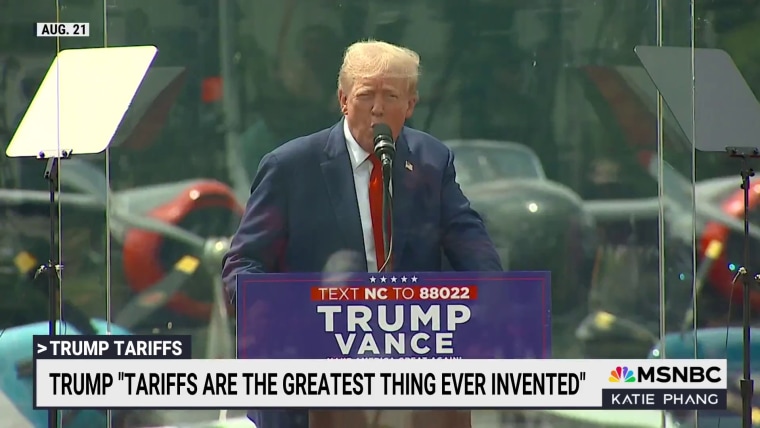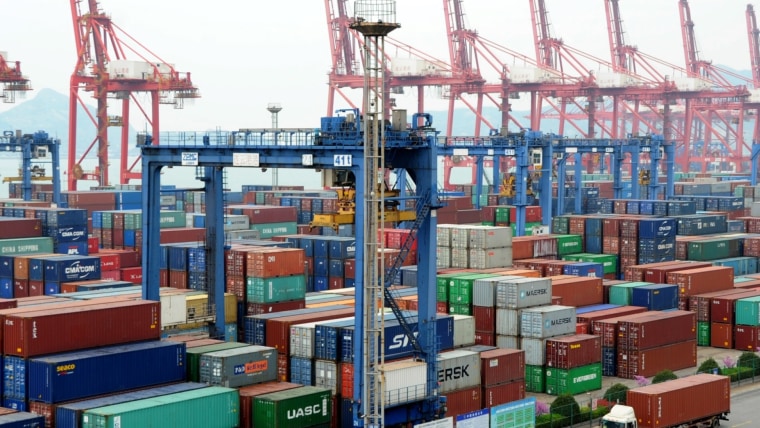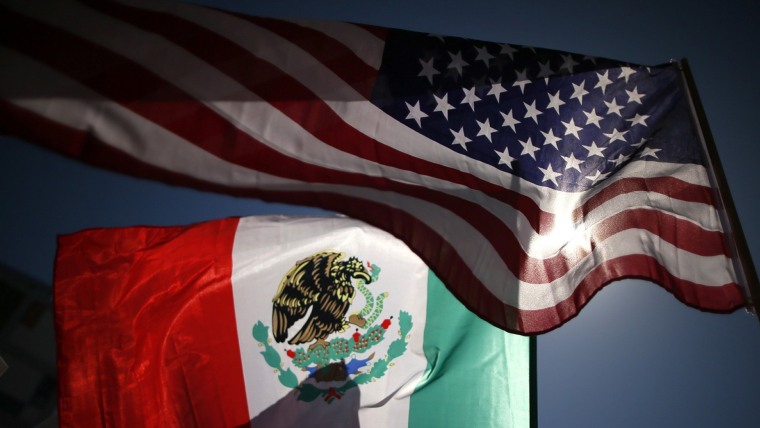Much of President-elect Donald Trump’s rise to power can be linked to his blaming Mexico for America’s problems. When he launched his first presidential campaign in 2015, he claimed Mexico was mostly “sending” criminals, including drug dealers and rapists, to the U.S., and he promised to build a wall to keep migrants out. Now, his threat to impose 25% tariffs on goods imported from Mexico and Canada is based in part on the idea that Mexico is the cause of the United States’ fentanyl addiction and to blame for a migrant crisis.
Trump's talk of targeting Mexico is not only misguided, it’s downright reckless.
Trump's talk of targeting Mexico is not only misguided, it’s downright reckless. Mexico, as the U.S. State Department notes in a Sept. 16 report, “was the United States’ top goods trading partner in 2023 with total two-way goods trade at $807 billion, surpassing China.” That State Department report also adds that “our countries rely on closely integrated supply chains to power our economies and strengthen our global competitiveness.”
The relationship between the U.S. and Mexico is mutually beneficial, and that isn’t going to change, no matter how loudly Trump or his loyalists attempt to defame Mexico’s people or blame our problems on our southern neighbor.
Still, Trump continues to threaten tariffs as a way to end the fentanyl crisis in particular. It riles up the nativism in his MAGA followers and gives them the scapegoat they crave.
But that ignores that the United States is the world’s most lucrative illegal drug market, estimated at $150 billion yearly for the most common drugs, along with an increasing use of fentanyl. The demand for drugs and the “war” against it fuels much of the violence and instability in Mexico.
Mexican President Claudia Sheinbaum pointed that out last week in response to Trump’s claim that he’ll address this country’s fentanyl problem by putting a tariff on Mexican imports. “Mexico does not produce weapons. We do not consume synthetic drugs,” Sheinbaum said. “Unfortunately, what we do have is the people who are being killed by the crime that is responding to the demand in your country.”
Drugs aren’t the only thing that U.S. consumers are demanding. As the State Department’s September report makes clear, trade between the two countries approached a trillion dollars last year. To suggest that the U.S.-Mexico economic relationship could be disrupted without bringing economic calamity upon the U.S. and the people who live here is absurd.

As Mexican journalist Alex González Ormerod highlights in a recent opinion piece for Time: “Mexico understands no North American country can go it alone, and so do Republicans in Congress. The bipartisan Americas Act recognizes that for the U.S. to stall the rise of China in the Western Hemisphere, keep prices stable, and bolster its own manufacturing, it needs to work with Mexico.”
Mexico is not the United States’ enemy but a crucial ally. Its political and economic importance to the U.S. is huge. Those supply chains, according to reporting from Rafael Bernal of The Hill, “have become a key competitive advantage for North American industry writ large, and the raison d’être for a broad segment of Mexican industry.”
The idea that Trump can punish Mexico with tariffs is as bad as the MAGA idea that Mexico supports open-border policies. Mexico has long worked with the U.S. to address migration, often through strict enforcement at its southern border and cooperation on security. In fact, Mexico has been stopping migrant caravans for years, a detail that Trump conveniently ignores when he threatens that country with tariffs.
Mexico has been stopping migrant caravans for years, a detail that Trump conveniently ignores when he threatens that country with tariffs.
A Congressional Research Service report from 2023 clearly states that since 2019, Mexico has “taken a harder line toward migration, in part due to U.S. pressure,” leading to “increased migrant apprehensions and restricted access to humanitarian visas, particularly for those traveling in large groups (caravans).”
The report also says: “After Mexico deployed its new National Guard for migration enforcement, reports of mistreatment of migrants rose. In a January 2021 operation against migrant smugglers, state police reportedly killed 19 people, including Guatemalan migrants, near the U.S. border. Since 2021, Mexico has sought to keep asylum seekers in southern Mexico despite dire conditions there. Mexico also has enforced new visa requirements for those from Brazil, Ecuador, and Venezuela, and increased expulsions.”
That all happened under then-Mexican President Andrés Manuel López Obrador, and his successor, Sheinbaum, told Trump last week “that caravans weren’t arriving at the northern border because they are being served in Mexico.” In other words, Mexico continues to be the United States’ real southern border wall. This, despite Sheinbaum’s claim that “Mexico’s position is not to close borders but instead build bridges between government and people.” That might sound noble, but Mexico has benefited from being a complicit immigration enforcement partner with the U.S. Why? The State Department’s report explains it. There’s money to be made in the world of global trade.

Trying to sever this cooperation through tariffs or isolationist rhetoric ignores the reality that Mexico is already handling challenges the U.S. simply cannot manage alone.
Even with all these American-made problems, Mexico has consistently sought to cooperate with the U.S., offering partnership instead of retaliation. That type of attitude led to successes in decreasing drug fatalities during the Biden administration. The challenges at the border, the violence fueled by the U.S. drug market and the strain on Mexico’s resources are all part of a shared problem that Trump and his MAGA followers would never admit was largely caused by decades of bad American policy.
Still, Mexico continues to offer cooperation over conflict. The U.S. cannot afford to weaken this partnership, not when its interests are so deeply intertwined with Mexico’s. To do anything else puts both countries at risk.

